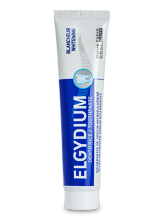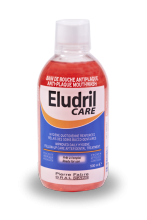Why use fluoride, and how?
Fluoride compounds for stronger teeth
Fluoride compounds are taken up by the teeth and make the enamel and dentine more resistant to acid attacks caused by the bacteria in dental plaque. They also seem to impede the proliferation of some of these bacteria.
There are various fluoride compounds, some of which, such as Fluorinol©, bind more quickly to the teeth.
Fluoride toothpaste and other fluoride care products
Fluoride compounds are used in toothpaste, gels for the teeth and gums, mouthwashes, and on dental floss.
Toothpaste containing fluoride compounds have different concentrations of fluoride. Those for children have lower concentrations than those for adults, and it is important to comply with the age limits. To be effective, fluoride-enriched toothpaste must be used every day.
Fluoride toothpaste sold over the counter contains 1500 ppm of fluoride at the most (ppm: parts per million, or mg/kg). In certain specific cases, a dentist may have cause to prescribe a toothpaste or another oral care product with a higher concentration of fluoride: these have a medication status and must be used under medical supervision.
Other sources of fluoride
Fluoride is not added to tap water in France. It generally contains less than 0.3 mg fluoride per litre. The health authorities instead chose to enrich cooking salt (to 250 ppm), which must be labelled fluoridated salt.
If the tap water contains more than 0.3 mg fluoride per litre (you can find this out from your town council), no fluoride supplement other than toothpaste is necessary.
Some mineral waters contain large quantities of fluoride. Be aware that children aged under six must not regularly drink mineral water containing more than 1 mg fluoride per litre. Mineral waters that are very rich in fluoride should not be consumed before the age of twelve.

